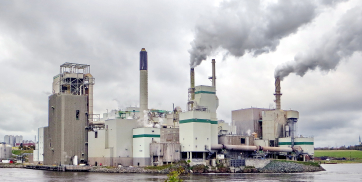In this month’s Highwood Bulletin, we cover the recent developments in methane policy, technology, and research, from EPA rule extensions to groundbreaking Permian Basin emission reductions and cutting-edge satellite monitoring systems. Whether you’re tracking regulatory shifts, technological advances, or emerging research, this edition delivers the insights that matter most to emissions professionals.
Highwood and EDF Release Methane Technology Report
Environmental Defense Fund (EDF) and Highwood have published “Leveraging Technology to Tackle Methane Emissions,” a high-level guide examining the diverse landscape of methane detection and quantification technologies across oil and gas operations. The report provides practical guidance on selecting appropriate technologies based on spatial resolution, sensitivity, and deployment constraints. (Download the report here)
EPA Extends Compliance Deadlines for Oil & Gas Methane Rules
The EPA has issued an interim final rule extending compliance deadlines for the Biden-Harris Administration’s Clean Air Act rules (OOOOb/c) affecting oil and natural gas operations. This update gives operators more time to meet requirements and allows states additional time to submit methane emission limitation plans for existing sources. (Read more here)
Highwood’s Website Just Got Smarter. Here’s What’s New
We’ve refreshed highwoodemissions.com to make it faster to find more of what you need. Check out the new OGMP 2.0 Compliance Hub, a practical Methane Detection & Leak Monitoring Guide, a comprehensive set of FAQs, and our always popular How Much Gas is That Calculator. If you’re evaluating reporting options, there’s a 2-minute EIP demo and role-based pages for Operations, GHG/Emissions, Sustainability, Compliance, and the C-Suite / Finance & Risk. All of our new product and solution briefs are quickly accessible, too. Take a look-and tell us what else would help.
Permian Basin Methane Intensity Declines by 50%+
S&P Global Commodity Insights estimates methane emissions intensity in the Permian Basin, responsible for approximately half of U.S. oil production, fell by more than 50% between 2022 and 2024. The dramatic improvement occurred alongside increased production volumes, and is believed to have been driven by enhanced operations, advanced equipment, and AI-powered technologies. (Read more here)
Sentinel-5 Mission Expands Global Atmospheric Monitoring
The European Copernicus programme continues to strengthen methane detection with its Sentinel-5 mission. The satellite system supports international monitoring and mitigation efforts by improving global coverage of atmospheric composition. (Read more here)
Methane Mitigation Opportunities in Nigeria
The Africa Policy Research Institute has released a report examining emission reduction strategies for Nigeria’s oil and gas sector. The analysis highlights approaches suited to the country’s operational context and regulatory landscape. (Read more here)
New Mexico Maintains Climate Regulation Standards
New Mexico is maintaining its existing climate and environmental regulations, including methane emission controls, despite recent changes in federal policy. State officials indicate that the current standards will remain in place to provide regulatory consistency and long-term planning certainty.
Pembina Institute Releases “Unfinished Business” Report
The Pembina Institute’s latest analysis examines methane emissions from Canada’s 520,000+ non-producing oil and gas wells, which contributed 11% of the country’s oil and gas methane emissions in 2023. The report recommends regulated closure timelines and improved monitoring to address these legacy environmental liabilities.(Read more here)
EU Methane Regulation Tracker Goes Live
A new tracking system monitors progress on European Union methane regulation implementation across member states. The platform provides real-time updates on regulatory developments and compliance status throughout the EU. (Read more here)
Updated Saudi Arabia Methane Emissions Estimates
New 2024 analysis provides updated estimates of methane emissions from Saudi Arabia’s oil and gas operations, offering comparative insights against previous assessments. The evaluation contributes to enhanced understanding of regional emission patterns and mitigation opportunities. (Read more here)
Connect with Highwood at these Events
September is a busy month, and you can find us speaking, exhibiting or just connecting and learning at these events:
- Gastech: Milan, Italy, Sep 9-12
- Shale Insight Conference: Erie, PA, Sep 16-18
- NY Climate Week: New York, NY, Sep 21-28
- SPE Workshop: Kuala Lumpur, Malaysia, Sep 29-30
- African Energy Week: Cape Town, South Africa Sep 29-Oct 3
- CH4 Connections: Fort Collins, CO, Sep 29-Oct 3
Wake Up and Smell the Methane
Highwood President & CIO Thomas Fox has launched Monday Morning Methane, a weekly video series covering recent methane-related news, policies, and technologies. The first twelve episodes are available on Highwood Emissions Youtube channel. Search #MondayMorningMethane to watch.
Highwood Research Digest
Highwood’s Research Digest highlights recent methane emissions research, focusing on measurement method advancements, quantification improvements, and emission source identification within the oil and gas sector. The 16th edition, published June 18, 2025, features the latest scientific developments and practical applications for industry professionals. Available for free here.
Highwood: Online Methane Courses
Our online methane education platform now offers numerous on-demand courses covering reconciliation and measurement-informed inventories, OGMP 2.0, methane technology, fundamentals, and voluntary initiatives. These professionally designed programs provide flexible learning opportunities for industry professionals at all levels. Explore our complete course catalog here.
Contribute to the Bulletin
We welcome guest writers to contribute Feature Articles to the Highwood Bulletin, reaching approximately 2,500 subscribers and 10,000 LinkedIn followers. We welcome unbiased, apolitical, constructive posts on emissions management topics, with authors receiving full credit and profile pages on our website, including backlink opportunities. Please reach out if you’re interested in sharing your expertise with our engaged professional community.





